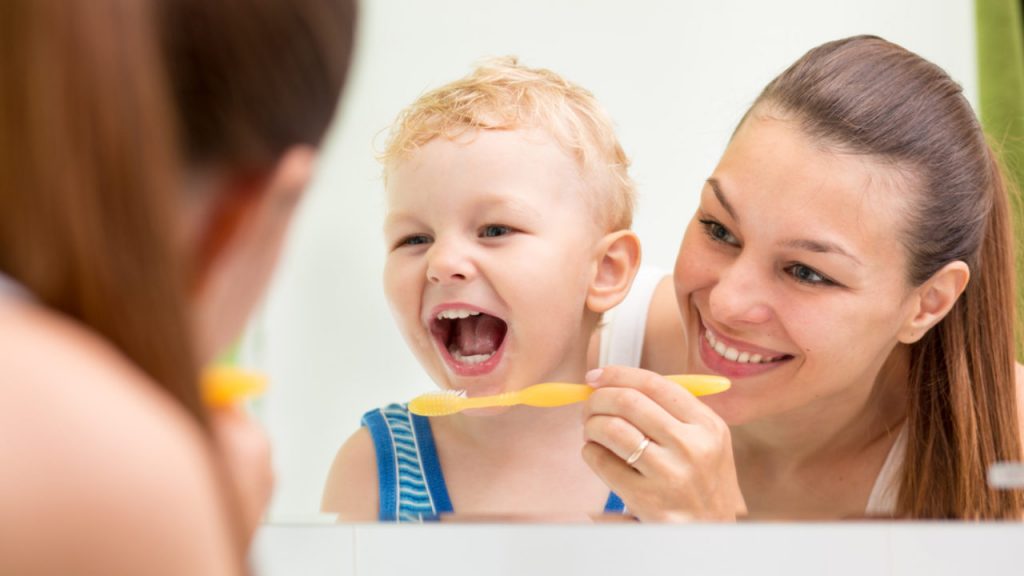When we are born, we usually have 20 baby teeth. These ‘baby teeth are also called primary teeth because they get replaced by permanent teeth later. The fact that these first teeth are eventually going to fall out does not mean you should not take care of them! At first, they can’t be taken care of, as they tend to erupt several months after birth. As American Dental Association claims, most of the baby’s first teeth start to erupt at 6 months of age.
By the age of 21, all of our 32 permanent teeth should fully erupt. Those are our permanent teeth, meaning we won’t get the next “set” of teeth if we damage them. It is of the essence to start taking care of your child’s teeth while they are still small in order to prevent future problems with their primary or permanent teeth.
So, when should you start?
Brushing teeth for children – ideal time
To make it as simple as possible, the ideal time is when your child’s first tooth has erupted! That’s why you need to check your child’s mouth frequently and look for white spaces that indicate that teeth are starting to come out. In most cases, this happens at six months of age, however, it doesn’t mean that the date is set for everyone. Teeth may start to erupt earlier or a bit later. All that you need to do is be a good “investigator” and notice the changes.
Let’s say the first tooth has come out, what then? First of all, you will need are age-restricted toothpaste and a baby toothbrush. Call East Chestermere Dental if you have any questions.
How to brush your child’s first teeth
So you’ve noticed your child’s first teeth and you have acquired baby dental supplies. Great news! You are good to go! Here is how you should brush your baby’s teeth:
- First of all, sit your baby on your lap and put its head on your chest. Make sure that your baby is comfortable and stable in that position.
- Next, you would want to be in front of a mirror. That way you can see what you are doing.
- Take your baby toothbrush and apply a small amount of age-appropriate toothpaste.
- Start brushing your baby’s teeth in an easy, gentle, circular manner.
- You do not need to rinse your baby’s mouth afterward.
The final verdict
Keep in mind that many children don’t actually like having their teeth brushed. This may make brushing difficult, so be patient! You should be brushing your child’s teeth two times per day, especially before bed. Never leave the toothbrush in a child’s mouth unattended. They may move or fall, hitting the toothbrush and causing harm to the mouth or teeth. Beginning to brush your baby’s teeth as soon as they come out will start a good habit that your child will benefit from later in life.

